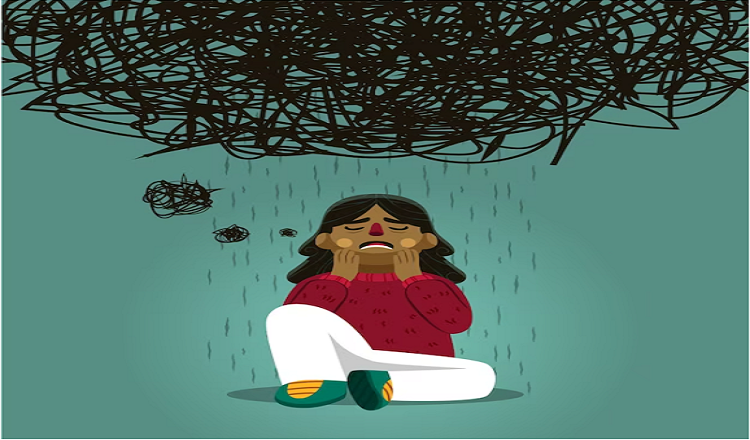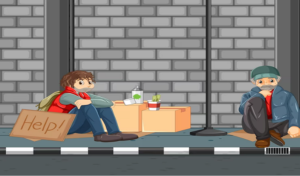The effects of poverty on mental health and well-being

Poverty is a big problem in many parts of the world, and it hurts the lives of millions of people. It affects not only a person’s ability to meet basic needs like food, shelter, and clothes, but also their mental health and well-being in a big way. Poverty can cause depression, anxiety, social isolation, and a whole host of other mental health issues. In this piece, we’ll look more closely at how poverty affects mental health and look at some ways to deal with this long-term problem.
The Link Between Being Poor and Having a Bad Mind
Studies have shown that being poor is a strong predictor of having a bad mental health. When money is tight, the stress and worry that come with it can make anxiety and sadness worse. People who live in poverty often have to worry about how much things like food, housing, and health care will cost. This constant worry about money can cause cortisol levels to rise, which is known to be bad for mental health.
Depression and being poor
One of the most common mental health problems that come with being poor is depression. People who live in poverty are more likely to feel depressed, have low self-esteem, and have trouble getting things done. They may feel like they can’t get out of their poverty and depression because they can’t see a way out. Often, they don’t have access to things like therapy or medicine that could help them get over these problems.
Anxiety and Being Poor
People who are poor are also more likely to have anxiety problems. Having to worry about making ends meet all the time can cause a lot of stress and anxiety, and even panic attacks. People who are poor may feel alone and without help, which can make their anxiety worse. Also, they might not be able to afford mental health resources, which makes it hard for them to deal with their anxiety successfully.
Being alone and poor go together.
Being poor can make you feel alone. People who are poor may not have access to social networks, education, or culture experiences. This separation can make people feel lonely and hopeless, which can hurt their mental health in the long run.
How to deal with the effects of poverty on mental health
Getting rid of poverty is important for mental health and well-being. But this is a hard problem that needs long-term answers. Here are some ways to help lessen the effects of poverty on mental health:
Improve access to resources for mental health
People who live in poverty often can’t get help for their mental health, like therapy or medicine. People living in poverty can get the help they need to take care of their mental health through community programmes, free hospitals, and mental health hotlines.
Support and include people in your community.
For good emotional health, social support is very important. Programmes that help people get involved in their communities, like community centres, support groups, and peer guidance, can help break down the isolation that often comes with being poor.
Give people the chance to learn
Access to schooling can help break the cycle of poverty and improve mental health in a big way. People living in poverty can get the skills and information they need to improve their finances and overall health by taking part in programmes that offer educational opportunities, like job training and career counselling.
Deal with the underlying structural problems
Poverty is caused by a number of things, such as structural obstacles and systemic inequalities. Getting to the bottom of these problems is important for lowering poverty and improving mental health. Promoting policies that give priority to affordable housing, income that can support a family, and access to health care can help address the causes of poverty.
Conclusion
Poverty is a big problem that affects people’s mental health and well-being in a lot of ways. Living in poverty can cause worry, isolation, and anxiety, which can lead to a number of mental health problems, such as depression and anxiety disorders. To help people who are struggling with the effects of poverty on their mental health and well-being, it is important to address the underlying causes of poverty and put access to mental health tools, social support, educational opportunities, and systemic change at the top of the list.
Read More You May Like:
- The effect of homelessness on public health and safety
- Reducing poverty through access to quality education and employment
- How to provide support and resources for people experiencing poverty and homelessness
- The effects of poverty on mental health and well-being
- The effect of homelessness on public health and safety








